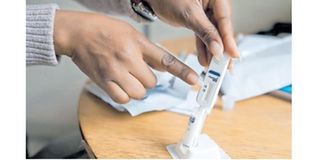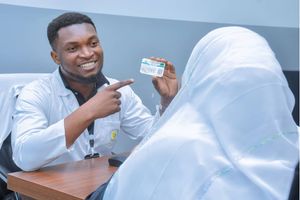Local production of rapid test kits for HIV, syphilis and hepatitis on the cards

Tanzania is set to begin local production of medical rapid test kits for HIV, syphilis and hepatitis by August 2026. PHOTO | FILE
What you need to know:
- This is the first time Tanzania will produce rapid test kits domestically
Dodoma. Tanzania is set to begin local production of medical rapid test kits for HIV, syphilis and hepatitis by August 2026, following a new agreement signed with global health technology firm ABBOTT.
Speaking during the signing ceremony yesterday, Health minister Jenista Mhagama said the move aligns with the ministry’s 2025/26 budget priorities, particularly the promotion of local manufacturing of medicines and medical equipment.
“This is the first time Tanzania will produce rapid test kits domestically and it marks a significant milestone in strengthening our health sector and reducing dependency on imports,” she said.
The initiative will also pave the way for Tanzania to start producing antiretroviral drugs (ARVs), she added.
Ms Mhagama noted that the government aims to boost the availability of locally made medical products to support health tourism, ensure affordability of treatment and increase access to life-saving diagnostics.
“This agreement will benefit both parties, but now the responsibility lies with the company to begin implementation. We expect to see action, not just promises,” she said. “The factory will help generate employment, increase government revenue and reduce the cost of importing rapid diagnostic kits.”
She added that the facility would support the Medical Stores Department (MSD) in supplying test kits to other SADC countries, positioning Tanzania as a regional hub for health logistics and excellence.
Chief Government Pharmacist Daudi Msasi said ABBOTT’s investment will bring cutting-edge diagnostic technology to Tanzania for the first time, allowing for the production of fourth-generation test kits.
“Currently, over 80 percent of our medical supplies are imported and when it comes to reagents, more than 99 percent are sourced from abroad. This factory will significantly cut those costs,” Dr Msasi said.
He added that discussions with ABBOTT began months ago, including at the presidential level and that the signed agreement outlines a clear implementation framework and timeline.
“By August 2026, we expect to see test kits produced in-country, reducing our import bill and improving access.”
Mr Steven Henn, Vice President of Commercial Operations for Infectious Diseases at ABBOTT, said the agreement builds on a long-standing partnership with the Tanzanian government.
“This signing reaffirms our commitment to strengthening healthcare systems and improving the health and well-being of Tanzanians,” he said.





